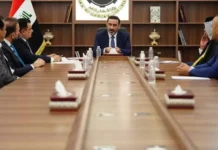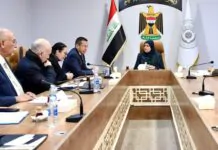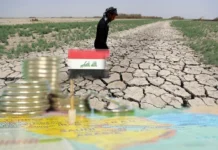On Sunday, an Iraqi legislator emphasized that the election of a new parliament speaker would make the approval of the general amnesty legislation easier.
“Political contrasts have slowed down numerous regulations in parliament, most strikingly the general absolution, oil and gas, and others,” Iraqi administrator Adnan al-Juhayshi told Shafaq News organization.
“The general reprieve regulation is a critical piece of regulation in parliament,” he added. ” Its passing in the approaching stage requires a political agreement.” Al-Juhayshi stated that the parliamentary legal committee is currently reviewing the government-drafted law and confirmed that the parliament received it.
The execution of 11 Sunni individuals convicted of terrorism-related offenses was announced by Iraqi authorities at the beginning of May. The only government facility authorized to carry out executions was a federal prison in the southern city of Nassiriya. The executions were carried out there. In the same prison, Iraq executed 13 people convicted of similar offenses in December of that year.
Sunni lawmakers much of the time whine that a considerable lot of their constituents wound up waiting for capital punishment because of admissions removed through torment, a case regularly upheld by basic liberties associations, including those of the UN. The use of secret evidence raises even more questions about these death sentences. The use of secret evidence that neither the accused nor their defense can see or respond to raises concerns regarding the fairness of these trials under Iraqi law.
Reprieve is a standard Sunni need, as numerous Sunnis are in state penitentiaries on psychological warfare changes, some anticipating execution. It is hard to verify the figures because of their wide range. Last year, Iraq’s Pastor of Equity Khalid Shawani expressed that 8,000 individuals are waiting for capital punishment out of 20,000 indicted on psychological warfare related charges. Ahmed Luaibi, the Ministry of Justice’s spokesperson, made the announcement in 2021 that 50,000 people had been found guilty of terrorism, half of whom had been given the death penalty. Given Iraq’s lack of transparency, which is frequently criticized by human rights groups and detainee families, the number of people held without trial is likely to be much higher.





